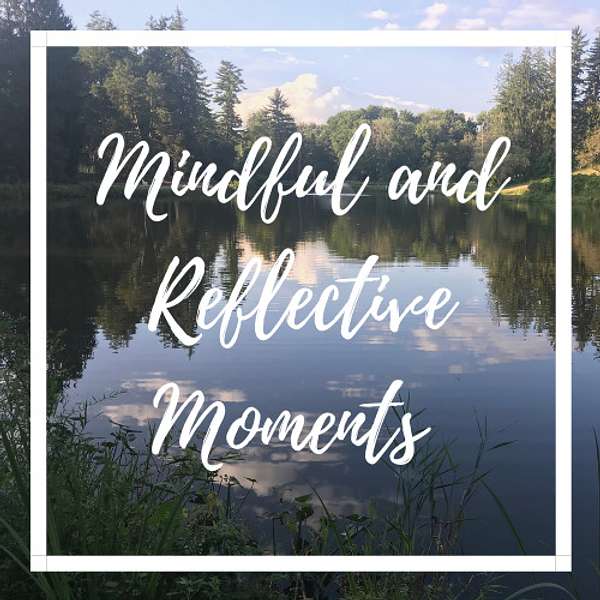
Mindful and Reflective Moments
Mindful and Reflective Moments
Carlos Alamo-Pastrana - I Don’t Look Like a Dean: A Reflective Moment on Microaggressions
Join the Dean of Vassar College, Carlos Alamo-Pastrana as he reflects on an especially hurtful and racialized microagression he experienced during his college years; discusses “hierarchical microaggressions;" and offers one of the multitude of mindful practices he has developed to help recenter and care for himself.
Intro 0:00
Episode :42
I Don’t Look Like a Dean: A Reflective Moment on Microaggression
When I was in college, I worked as a groundskeeper on the golf course of a prestigious five star hotel in Colorado. The hotel often recruited workers from the Caribbean to fill out its staff during the busy summer months. Bonded by our affinity for all things Caribbean, the workers and I soon developed a close friendship.
On one occasion, we were busy working on putting in an irrigation line near one of the course's tee boxes. As we dug with our shovels and conversed with one another, a golf cart with two older white women drove by, headed to the next tee. Driving past us, one of the women muttered, “Oh! Look, it's more of them. I think they must have a work release program with a local prison. I hope they know what they are doing.”
My work colleagues and I froze, staring at each other both puzzled and stunned by what we had just heard. The inference was two-fold. The first was the notion of criminality with which she had stigmatized all of our racialized bodies, especially those of my Afro-Caribbean colleagues. The second, and equally hurtful implication, was that we were both out of place and likely incompetent to do the work assigned to us. The ways in which race, work skills, and presumed educational level intersect often lead to varying forms of microaggressions that workers of color encounter and have to tolerate given the varying levels of job insecurity people of color experience.
The language of microaggressions is especially prominent in academia, where I have ultimately landed as my profession. While I experienced microaggressions as a faculty member, these often felt less pronounced and were limited to interactions with my colleagues and the occasional student. As the Dean of the College, I have seen a tenfold increase in microaggressions or what education scholars Kathryn Young, Myron Anderson, and Saran Stewart refer to as “hierarchical microaggressions.” Hierarchical microaggressions represent the everyday slights found in higher education that communicate the systemic valuing (or devaluing) of a person because of their institutional role. Perhaps this is attributable to the fact that I am in a more public-facing role, interacting with not only students and other faculty, but also parents and the general public.
The microaggressions that I experience range from the constant inability and lack of care to pronounce my name correctly to the various ways that my knowledge or directives are questioned. By far the most common refrain I hear, at least once a month, is the ever apologetic, “I’m sorry, you just don’t look like a Dean.”
The constant barrage of microaggressions that I experience accumulate over time and can often lead to feelings of loneliness, anger, and self-doubt. Over the years I have developed a multitude of mindful practices that help me to recenter and care for myself.
One of my favorite practices involves journaling about the instances where I’ve experienced a microaggression. The prompts are usually very simple but they always have two parts. The first simply asks, “What happened with a particular person or during an event?” Documenting the things that happen to us is an important act of acknowledgement and helps facilitate the process of better understanding what happened.
I always find the second prompt to be equally or perhaps even more important. The second prompt typically focuses on a specific aspect of my family’s history or a place that has been important to my family. For example, “Describe the farm that abuelita grew up on in the Puerto Rican countryside.” Sometimes I don’t know all the details but taking the time to think and reflect about my family and our journey helps to slow my mind down and to remember some of the motivations that I have for doing the work that I do.
So let's pause for a second and develop your own prompt. Is there a family member whose biography or parts of their biography you cherish? What about a place where you might have grown up and the surroundings and people who gave that place life? If these are hard or difficult, what about your own educational journey? Is there a professor or peer that positively helped to shape the person you are today? What were some of the defining features of these kinds of educators?
Journaling also serves as a powerful reminder that we are always more than what we are told we are.
You are ALWAYS more than what you have been told you are.
This seems like a simple truth, but for marginalized communities and groups this is a hard fought truth. Dominant groups spend much of their time inserting themselves and attempting to define the lives of others from whom they are socially distant . In many ways, microaggressions are but one example of this. Taking the time to acknowledge and document is a valuable form of archiving, retrieval, and healing that allows me to continue to navigate the complicated dynamics of my work and the ways in which it intersects with my racialized identity.
Thank you for joining me today.
Outro 6:09